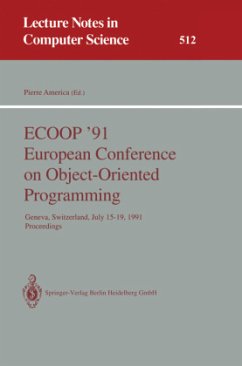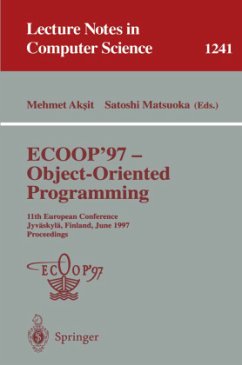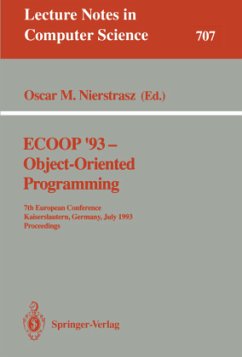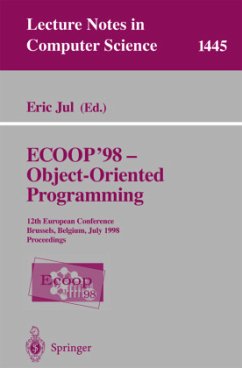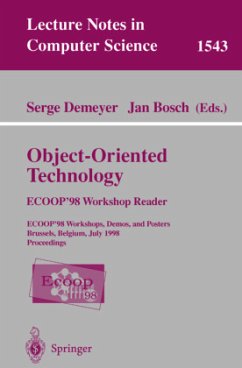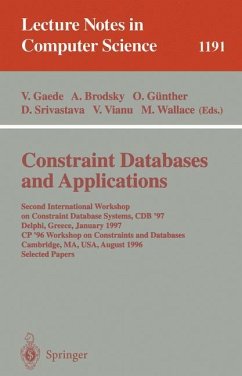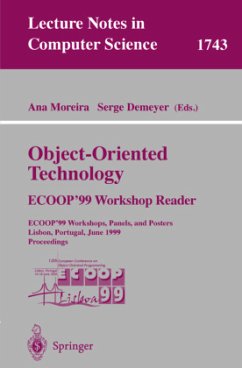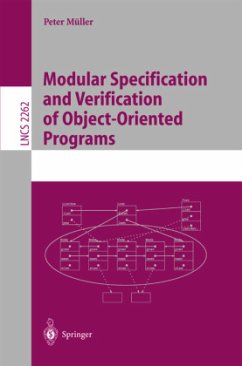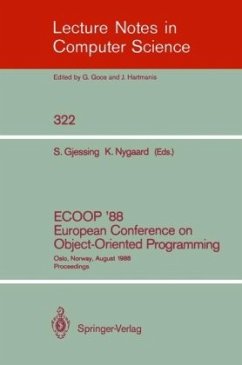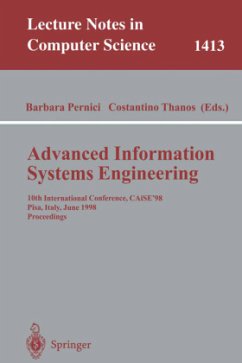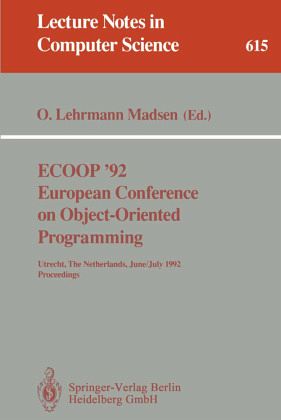
ECOOP '92. European Conference on Object-Oriented Programming
Utrecht, The Netherlands, June 29 - July 3, 1992. Proceedings
Mitarbeit: Lehrmann Madsen, Ole
Versandkostenfrei!
Versandfertig in 1-2 Wochen
39,99 €
inkl. MwSt.

PAYBACK Punkte
20 °P sammeln!
This volume constitutes the proceedings of the sixthEuropean Conference on Object-Oriented Programming (ECOOP),held in Utrecht, The Netherlands, June 29 - July 3, 1992.Since the "French initiative" to organize the firstconference in Paris, ECOOP has been a very successful forumfor discussing the state of the art of object orientation.ECOOP has been able to attract papers of a high scientificquality as well as high quality experience papers describingthe pros and cons of using object orientation in practice.This duality between theory and practice within objectorientation makes a good example o...
This volume constitutes the proceedings of the sixthEuropean Conference on Object-Oriented Programming (ECOOP),held in Utrecht, The Netherlands, June 29 - July 3, 1992.Since the "French initiative" to organize the firstconference in Paris, ECOOP has been a very successful forumfor discussing the state of the art of object orientation.ECOOP has been able to attract papers of a high scientificquality as well as high quality experience papers describingthe pros and cons of using object orientation in practice.This duality between theory and practice within objectorientation makes a good example of experimental computerscience.The volume contains 24 papers, including two invited papersand 22 papers selected by the programme committee from 124submissions. Each submitted paper was reviewed by 3-4people, and the selection of papers was based only on thequality of the papers themselves.





